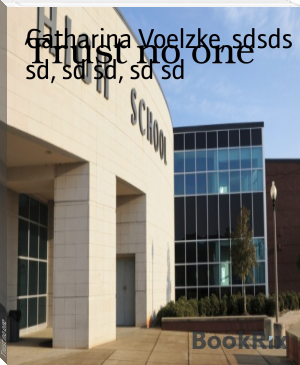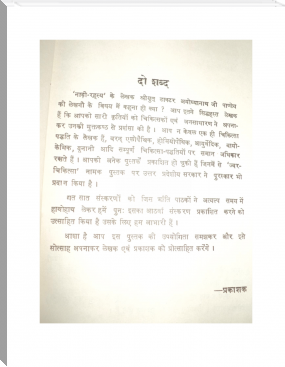LYSBETH, H. RIDER HAGGARD [brene brown rising strong txt] 📗

- Author: H. RIDER HAGGARD
Book online «LYSBETH, H. RIDER HAGGARD [brene brown rising strong txt] 📗». Author H. RIDER HAGGARD
"Explanations are needless, young man," he said, in a measured and melodious voice, "for my studies of the matter have already informed me of more than you can tell. Let me see; your name is Adrian van Goorl--no, called Van Goorl; the lady you desire to win is Elsa Brant, the daughter of Hendrik Brant, a heretic and well-known goldsmith, who was recently executed at The Hague. She is a girl of much beauty, but one unnaturally insensible to the influence of love, and who does not at present recognise your worth. There are, also, unless I am mistaken, other important circumstances connected with the case.
"This lady is a great heiress, but her fortune is at present missing; it is, I have reason to believe, hidden in the Haarlemer Meer. She is surrounded with influences that are inimical to you, all of which, however, can be overcome if you will place yourself unreservedly in my hands, for, young man, I accept no half-confidences, nor do I ask for any fee. When the fortune is recovered and the maiden is your happy wife, then we will talk of payment for services rendered, and not before."
"Wonderful, wonderful!" gasped Adrian; "most learned senor, every word you say is true."
"Yes, friend Adrian, and I have not told you all the truth. For instance--but, no, this is not the time to speak. The question is, do you accept my terms?"
"What terms, senor?"
"The old terms, without which no wonder can be worked--faith, absolute faith."
Adrian hesitated a little. Absolute faith seemed a large present to give a complete stranger at a first interview.
"I read your thought and I respect it," went on the sage, who, to tell truth, was afraid he had ventured a little too far. "There is no hurry; these affairs cannot be concluded in a day."
Adrian admitted that they could not, but intimated that he would be glad of a little practical and immediate assistance. The sage buried his face in his hands and thought.
"The first thing to do," he said presently, "is to induce a favourable disposition of the maiden's mind towards yourself, and this, I think, can best be brought about--though the method is one which I do not often use--by means of a love philtre carefully compounded to suit the circumstances of the case. If you will come here to-morrow at dusk, the lady of this house--a worthy woman, though rough of speech and no true adept--will hand it to you."
"It isn't poisonous?" suggested Adrian doubtfully.
"Fool, do I deal in poisons? It will poison the girl's heart in your favour, that is all."
"And how is it to be administered?" asked Adrian.
"In the water or the wine she drinks, and afterwards you must speak to her again as soon as possible. Now that is settled," he went on airily, "so, young friend, good-bye."
"Are you sure that there is no fee?" hesitated Adrian.
"No, indeed," answered the sage, "at any rate until all is accomplished. Ah!" and he sighed, "did you but know what a delight it is to a weary and world-worn traveller to help forward the bright ambitions of youth, to assist the pure and soaring soul to find the mate destined to it by heaven--ehem!--you wouldn't talk of fees. Besides, I will be frank; from the moment that I entered this room and saw you, I recognised in you a kindred nature, one which under my guidance is capable of great things, of things greater than I care to tell. Ah! what a vision do I see. You, the husband of the beautiful Elsa and master of her great wealth, and I at your side guiding you with my wisdom and experience--then what might not be achieved? Dreams, doubtless dreams, though how often have my dreams been prophetic! Still, forget them, and at least, young man, we will be friends," and he stretched out his hand.
"With all my heart," answered Adrian, taking those cool, agile-looking fingers. "For years I have sought someone on whom I could rely, someone who would understand me as I feel you do."
"Yes, yes," sighed the sage, "I do indeed understand you."
"To think," he said to himself after the door had closed behind the delighted and flattered Adrian, "to think that I can be the father of such a fool as that. Well, it bears out my theories about cross- breeding, and, after all, in this case a good-looking, gullible fool will be much more useful to me than a young man of sense. Let me see; the price of the office is paid and I shall have my appointment duly sealed as the new Governor of the Gevangenhuis by next week at furthest, so I may as well begin to collect evidence against my worthy successor, Dirk van Goorl, his adventurous son Foy, and that red- headed ruffian, Martin. Once I have them in the Gevangenhuis it will go hard if I can't squeeze the secret of old Brant's money out of one of the three of them. The women wouldn't know, they wouldn't have told the women, besides I don't want to meddle with them, indeed nothing would persuade me to that"--and he shivered as though at some wretched recollection. "But there must be evidence; there is such noise about these executions and questionings that they won't allow any more of them in Leyden without decent evidence; even Alva and the Blood Council are getting a bit frightened. Well, who can furnish better testimony than that jackass, my worthy son, Adrian? Probably, however, he has a conscience somewhere, so it may be as well not to let him know that when he thinks himself engaged in conversation he is really in the witness box. Let me see, we must take the old fellow, Dirk, on the ground of heresy, and the youngster and the serving man on a charge of murdering the king's soldiers and assisting the escape of heretics with their goods. Murder sounds bad, and, especially in the case of a young man, excites less sympathy than common heresy."
Then he went to the door, calling, "Meg, hostess mine, Meg."
He might have saved himself the trouble, however, since, on opening it suddenly, that lady fell almost into his arms.
"What!" he said, "listening, oh, fie! and all for nothing. But there, ladies will be curious and"--this to himself--"I must be more careful. Lucky I didn't talk aloud."
Then he called her in, and having inspected the chamber narrowly, proceeded to make certain arrangements.
CHAPTER XVII(BETROTHED)
At nightfall on the morrow Adrian returned as appointed, and was admitted into the same room, where he found Black Meg, who greeted him openly by name and handed to him a tiny phial containing a fluid clear as water. This, however, was scarcely to be wondered at, seeing that it was water and nothing else.
"Will it really work upon her heart?" asked Adrian, eyeing the stuff.
"Ay," answered the hag, "that's a wondrous medicine, and those who drink it go crazed with love for the giver. It is compounded according to the Master's own receipt, from very costly tasteless herbs that grow only in the deserts of Arabia."
Adrian understood, and fumbled in his pocket. Meg stretched out her hand to receive the honorarium. It was a long, skinny hand, with long, skinny fingers, but there was this peculiarity about it, that one of these fingers chanced to be missing. She saw his eyes fixed upon the gap, and rushed into an explanation.
"I have met with an accident," Meg explained. "In cutting up a pig the chopper caught this finger and severed it."
"Did you wear a ring on it?" asked Adrian.
"Yes," she replied, with sombre fury.
"How very strange!" ejaculated Adrian.
"Why?"
"Because I have seen a finger, a woman's long finger with a gold ring on it, that might have come off your hand. I suppose the pork-butcher picked it up for a keepsake."
"May be, Heer Adrian, but where is it now?"
"Oh! it is, or was, in a bottle of spirits tied by a thread to the cork."
Meg's evil face contorted itself. "Get me that bottle," she said hoarsely. "Look you, Heer Adrian, I am doing much for you, do this for me."
"What do you want it for?"
"To give it Christian burial," she replied sourly. "It is not fitting or lucky that a person's finger should stand about in a bottle like a caul or a lizard. Get it, I say get it--I ask no question where--or, young man, you will have little help in your love affairs from me."
"Do you wish the dagger hilt also?" he asked mischievously.
She looked at him out of the corners of her black eyes. This Adrian knew too much.
"I want the finger and the ring on it which I lost in chopping up the pig."
"Perhaps, mother, you would like the pig, too. Are you not making a mistake? Weren't you trying to cut his throat, and didn't he bite off the finger?"
"If I want the pig, I'll search his stye. You bring that bottle, or----"
She did not finish her sentence, for the door opened, and through it came the sage.
"Quarrelling," he said in a tone of reproof. "What about? Let me guess," and he passed his hand over his shadowed brow. "Ah! I see, there is a finger in it, a finger of fate? No, not that," and, moved by a fresh inspiration, he grasped Meg's hand, and added, "Now I have it. Bring it back, friend Adrian, bring it back; a dead finger is most unlucky to all save its owner. As a favour to me."
"Very well," said Adrian.
"My gifts grow," mused the master. "I have a vision of this honest hand and of a great sword--but, there, it is not worth while, too small a matter. Leave us, mother. It shall be returned, my word on it. Yes, gold ring and all. And now, young friend, let us talk. You have the philtre? Well, I can promise you that it is a good one, it would almost bring Galatea from her marble. Pygmalion must have known that secret. But tell me something of your life, your daily thoughts and daily deeds, for when I give my friendship I love to live in the life of my friends."
Thus encouraged, Adrian told him a great deal, so much, indeed, that the Senor Ramiro, nodding in the shadow of his hood, began to wonder whether the spy behind the cupboard door, expert as he was, could possibly make his pen keep pace with these outpourings. Oh! it was a dreary task, but he kept to it, and by putting in a sentence here and there artfully turned the conversation to matters of faith.
"No need to fence with me," he said presently. "I know how you have been





Comments (0)